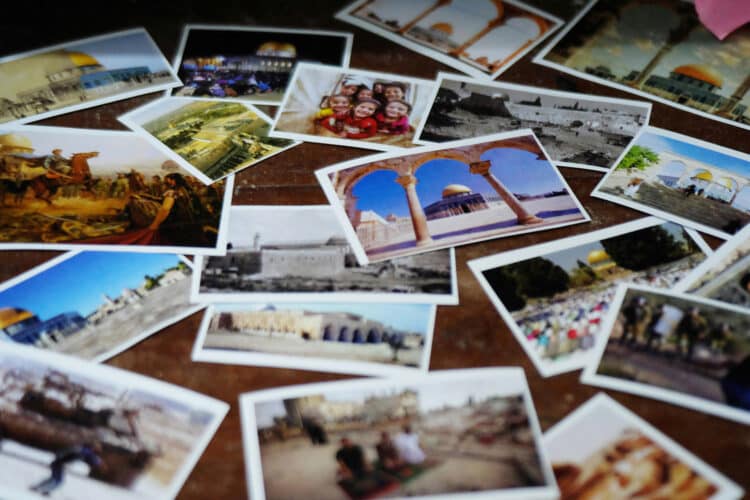Using Travel Experiences to Enhance Personal Essays

Writing a personal essay is primarily about narrative—sharing your own ideas and experiences in a way that will appeal to others. But supposing you could make your work even more observant, engaging, and interesting? Including trip experiences is among the finest approaches to accomplish this. Travel, whether it’s a little vacation to a nearby town or an international experience, has the ability to change viewpoints, encourage personal development, and provide rich content for interesting papers.
This post will look at how your personal essays could be improved by trip experiences, how to find the appropriate storyline, and how to create a vivid and interesting tale that stays with you.
Why Travel Experiences Make Personal Essays More Compelling
Travel is a chance to challenge your comfort zone, learn about other cultures, and change your viewpoint. This exposure gives your work more real authenticity and richness. Travel may deepen your personal writings for the following reasons:
- Novel viewpoints: Traveling exposes you to several approaches of life and thought. Whether it’s a chat with a native or a period of introspection in a strange place, these encounters might provide special insights that distinguishes your writing.
- Individual Development: Overcoming travel mishaps, learning a different language, or adjusting to a new culture—all of which provide challenges—helps one become resilient and self-awareness. These subjects create gripping narratives.
- Captivating narrative: Stories of travel are inherently fascinating. Often including adventure, struggle, and personal transformation—all essential components of a great essay—they also reflect these ideas.
Tips for Writing a Memorable Travel-Inspired Essay
Writing a strong travel-based personal essay requires a balance of storytelling, reflection, and structure. Keep these final tips in mind:
- Clearly structure your essay with a good opening, body, and conclusion. Start with a strong hook, then use vivid details to expand your narrative to finish with a strong takeaway.
- Edit for clarity; occasionally travel tales have too many details. Be selective—only include components that support the general theme of your essay.
- Keep It Authentic: Your essay should really capture your feelings and events. Don’t embellish or falsify facts only to give your narrative greater emotional resonance.
What if you’re facing tight deadlines, struggling with academic tasks, or simply unsure how to improve your writing? Many students ask themselves, “Where can I find reliable assistance to write my paper and assignments?” In that case, the best solution is to monitor Edubirdie, which can handle such queries.
With years, Edubirdie has been helping students by offering excellent assistance with essays, research papers, and homework. Their dependable services guarantee that you present polished and unique work, whether your needs include assistance with difficult academic writing, research, or editing.
Choosing the Right Travel Story for Your Essay
Not every travel experience is worth writing about. Some are fun but lack depth, while others may be meaningful but not relevant to your essay’s theme. Here’s how to choose the right story:
Reflecting on Personal Transformation
Consider a moment from your trips that, in some measure, altered you. Did you discover anything significant about yourself? Following the encounter, did your perspective of the world change? The finest travel-oriented pieces highlight personal development rather than just the location.
If you visited a foreign nation and had difficulty communicating because of a language barrier, for instance, you may write about how this encounter taught you patience, flexibility, or the value of human connection beyond words.
Avoiding Clichés in Travel Writing
Many students produce boilerplate trip essays, such as “I went to Paris, saw the Eiffel Tower, ate croissants, and had an amazing time.” These events could be fun, but they don’t really show anything about you. Rather, pay attention to personally significant events with long-lasting influence.Rather, pay attention to personal events with long-lasting influence.
To avoid clichés:
- Emphasize little, significant events instead of popular tourist destinations.
- Show sensitivity—discuss difficulties, shocks, or periods of self-doubt.
- Write about unusual information only you could know.
Crafting a Vivid Narrative with Sensory Details
The best essays make the reader feel like they’re experiencing the journey with you. To achieve this, use sensory details to create a vivid picture.
Instead of saying:
“The market in Marrakech was interesting.”
Try:
“The scent of freshly ground spices filled the air as merchants called out in Arabic, their voices blending with the rhythmic beat of drums in the background. My hands brushed against intricately woven fabrics, each telling a story of its own.”
See the difference? By engaging the reader’s senses—sight, sound, smell, taste, and touch—you bring your experience to life.
Use specific anecdotes to make your essay feel more immersive. Instead of summarizing your trip, zoom in on a particular moment that captures its essence.
Weaving Travel Lessons into a Broader Theme
A strong personal essay goes for meaning in an experience rather than just recounting it. Your essay might profit more from trip experiences than just entertainment value.
Ask yourself:
- What universal theme does my travel story connect to? (Growth, resilience, cultural understanding, identity, etc.)
- How did this experience change my perspective?
- What lesson can the reader take away from my story?
If you volunteered abroad, for instance, your essay should go on how the experience altered your perspective of privilege, duty, or global connection rather than just list what you did.
Conclusion
Including travel stories into your personal essays can help them to be more interesting, significant, and original. Your essay will be really unique if you choose the correct narrative, use striking details, and link your trip to a more general issue.
Remember, the objective is to convey how the event affected you, not just where you visited. Therefore, the next time you are thinking back on your trips, think about how those events may form a striking personal essay.
EXPLORE SOMEWHERE NEW
BUY A PRINT
All photos on this site are available as limited edition fine art photographic prints. Please get in touch for sizes and rates.




